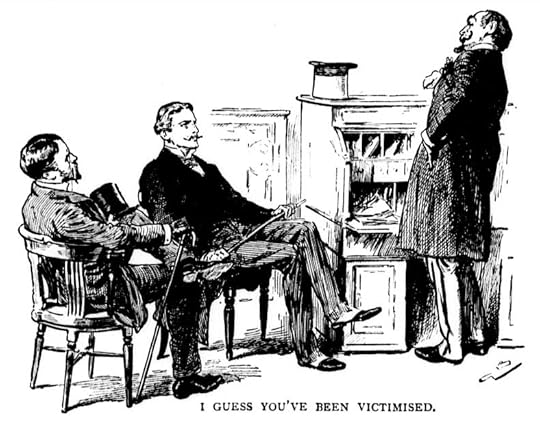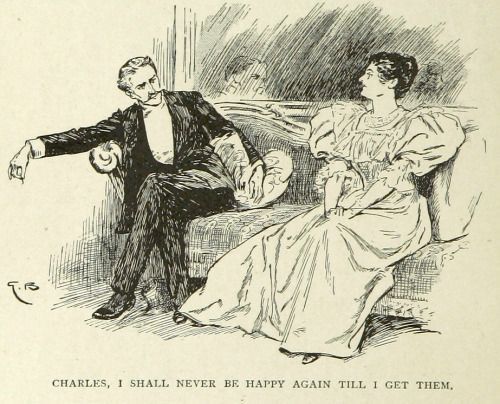What do you think?
Rate this book


339 pages, Kindle Edition
First published January 1, 1897

My name is Seymour Wilbraham Wentworth. I am brother-in-law and secretary to Sir Charles Vandrift, the South African millionaire and famous financier. Many years ago, when Charlie Vandrift was a small lawyer in Cape Town, I had the (qualified) good fortune to marry his sister. Much later, when the Vandrift estate and farm near Kimberley developed by degrees into the Cloetedorp Golcondas, Limited, my brother-in-law offered me the not unremunerative post of secretary; in which capacity I have ever since been his constant and attached companion.Well, as to that last the reader will eventually beg to differ. Vandrift fully earns his fate--the millionaire's vanity and greed blinds him to each con job that the devilishly clever Colonel Clay and his female side-kick devise.
He is not a man whom any common sharper can take in, is Charles Vandrift. Middle height, square build, firm mouth, keen eyes—the very picture of a sharp and successful business genius. I have only known one rogue impose upon Sir Charles, and that one rogue, as the Commissary of Police at Nice remarked, would doubtless have imposed upon a syndicate of Vidocq, Robert Houdin, and Cagliostro.
This particular season we were snugly ensconced at the Hôtel des Anglais. We had capital quarters on the first floor—salon, study, and bedrooms—and found on the spot a most agreeable cosmopolitan society. All Nice, just then, was ringing with talk about a curious impostor, known to his followers as the Great Mexican Seer, and supposed to be gifted with second sight, as well as with endless other supernatural powers. Now, it is a peculiarity of my able brother-in-law's that, when he meets with a quack, he burns to expose him; he is so keen a man of business himself that it gives him, so to speak, a disinterested pleasure to unmask and detect imposture in others. Many ladies at the hotel, some of whom had met and conversed with the Mexican Seer, were constantly telling us strange stories of his doings. He had disclosed to one the present whereabouts of a runaway husband; he had pointed out to another the numbers that would win at roulette next evening; he had shown a third the image on a screen of the man she had for years adored without his knowledge. Of course, Sir Charles didn't believe a word of it; but his curiosity was roused; he wished to see and judge for himself of the wonderful thought-reader.

Who are the real thieves here? After yet another run-in with Clay, "We communicated the matter to the Parisian police. They were most unsympathetic. "It is no doubt Colonel Clay," said the official whom we saw; "but you seem to have little just ground of complaint against him. As far as I can see, messieurs, there is not much to choose between you." But you see, Sir Charles is a millionaire, and as we know that makes all the difference.As usual, at the hotel, a great many miscellaneous people showed a burning desire to be specially nice to us. If you wish to see how friendly and charming humanity is, just try being a well-known millionaire for a week, and you'll learn a thing or two. Wherever Sir Charles goes he is surrounded by charming and disinterested people, all eager to make his distinguished acquaintance, and all familiar with several excellent investments, or several deserving objects of Christian charity. It is my business in life, as his brother-in-law and secretary, to decline with thanks the excellent investments, and to throw judicious cold water on the objects of charity. Even I myself, as the great man's almoner, am very much sought after.The African Millionaire is witty social satire, almost as pointed as Dickens but a good deal shorter and less ponderous.